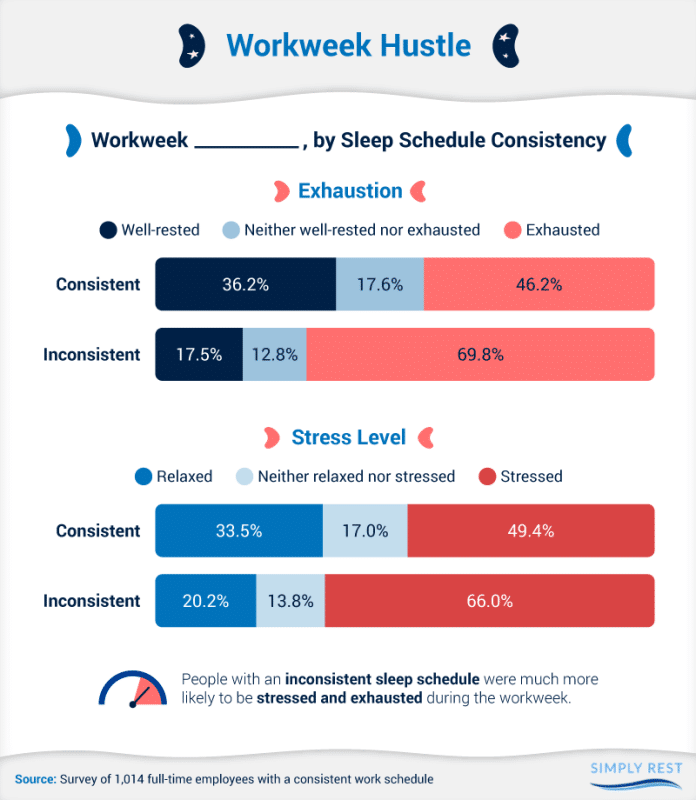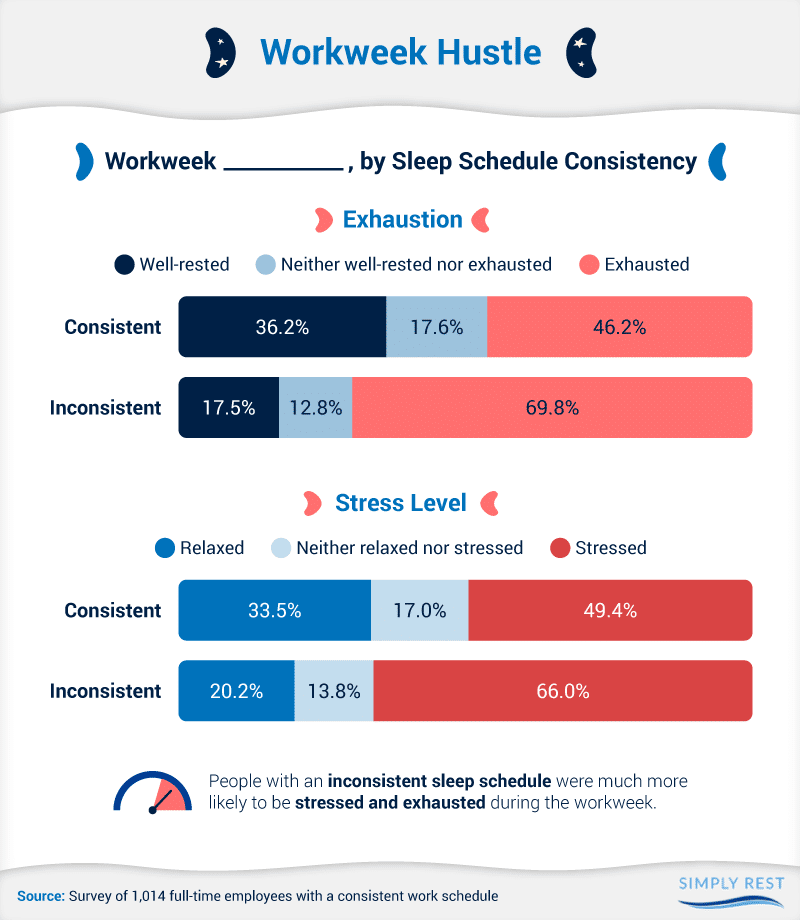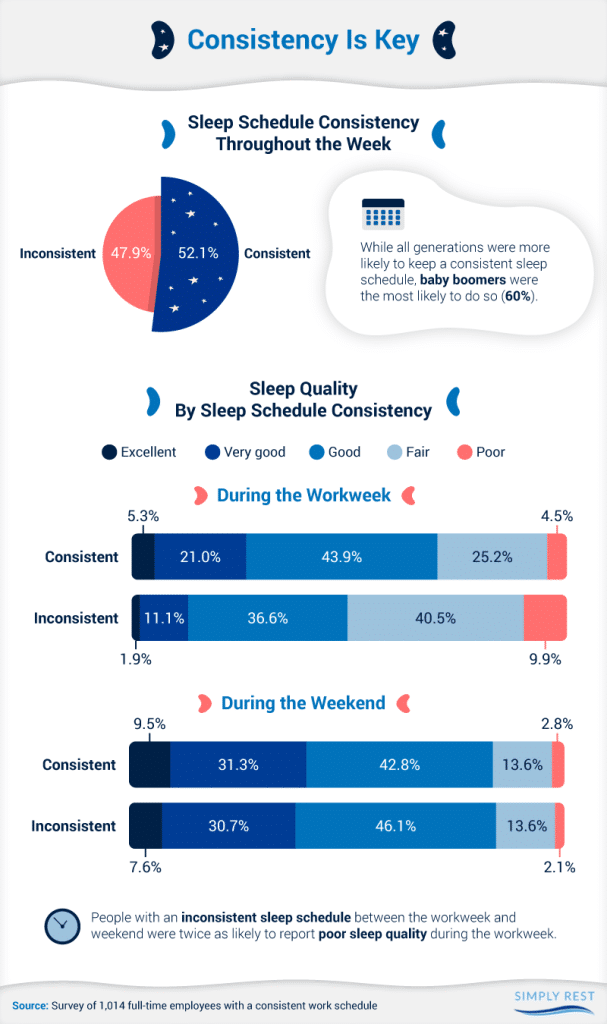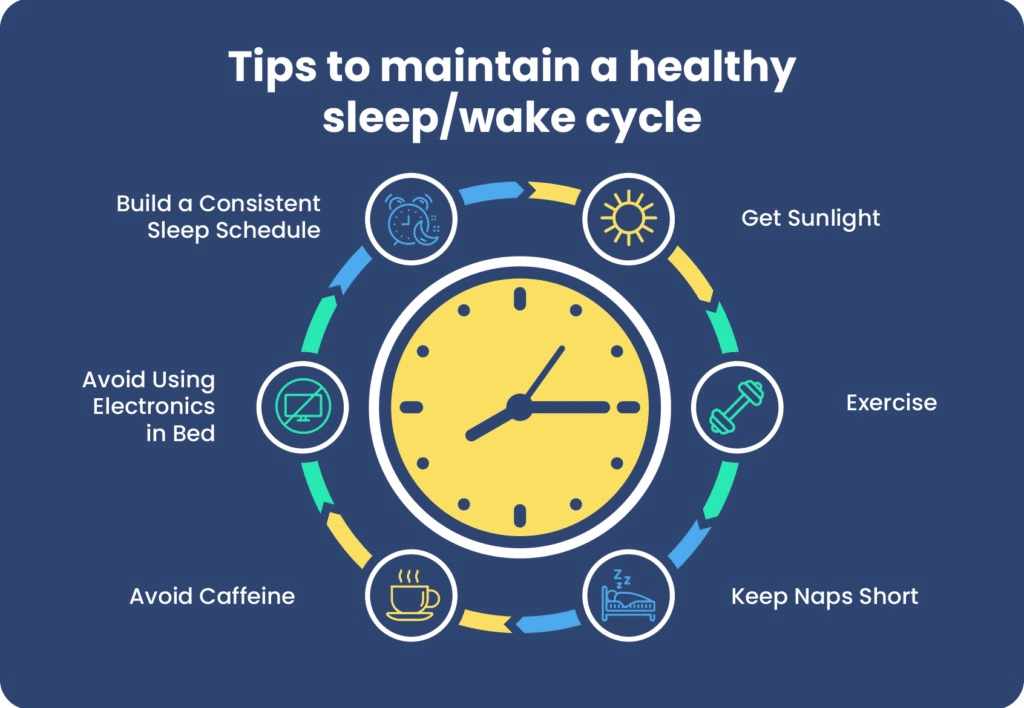Have you ever found yourself tossing and turning, unable to fall asleep at night? Or perhaps you struggle to wake up in the morning, feeling groggy and unrefreshed? If so, you’re not alone. Many of us face the same challenge of trying to establish a consistent sleep schedule. In this article, we will explore some practical tips and strategies to help you achieve a regular sleep routine, so that you can wake up feeling rested and ready to conquer the day ahead. From creating a calming bedtime routine to avoiding stimulants before bed, we’ve got you covered. So, say goodbye to restless nights and hello to a well-rested, energized you!
Review contents
Creating a Consistent Sleep Schedule
This image is property of www.adityabirlacapital.com.
Importance of a Consistent Sleep Schedule
Sleep is an essential part of our lives, and establishing a consistent sleep schedule is crucial for our overall well-being. When we consistently go to bed and wake up at the same time every day, our bodies develop a natural rhythm, known as the circadian rhythm. This natural rhythm helps regulate our internal processes, such as hormone production, digestion, and body temperature. A consistent sleep schedule also ensures that we get enough quality sleep, which is crucial for cognitive function, mood regulation, and physical health.
Identify the Recommended Hours of Sleep
To create a consistent sleep schedule, it is important to first identify the recommended hours of sleep for our age group. The National Sleep Foundation recommends that adults between the ages of 18 and 64 aim for 7-9 hours of sleep per night, while those over the age of 65 should aim for 7-8 hours. By understanding these recommendations, we can establish a sleep schedule that allows for adequate rest and rejuvenation.
Determine Your Ideal Sleep Schedule
Once we know the recommended hours of sleep, we can determine our ideal sleep schedule by working backward from the desired wake-up time. For example, if we need to wake up at 7 am, and we aim for 8 hours of sleep, we should ideally be in bed and ready to sleep by 11 pm. However, it is important to make adjustments based on our individual needs and lifestyles. Some people may function better with slightly more or less sleep, so it is crucial to pay attention to our own bodies and find the sleep schedule that works best for us.
Establish a Bedtime Routine
To prepare our bodies for sleep and establish a consistent sleep schedule, it is important to establish a relaxing bedtime routine. This routine can include activities such as taking a warm bath, reading a book, practicing deep breathing exercises, or listening to calming music. Engaging in these activities signals to our bodies that it is time to unwind and prepare for restful sleep.
This image is property of blog.eightsleep.com.
Avoid Stimulants and Electronics
In order to ensure a consistent sleep schedule, it is important to avoid stimulants and electronic devices close to bedtime. Stimulants such as caffeine, nicotine, and alcohol can interfere with our ability to fall asleep and maintain a deep sleep throughout the night. It is recommended to avoid consuming caffeinated beverages or using nicotine products at least four to six hours before bedtime. Additionally, the blue light emitted by electronic devices can suppress the production of melatonin, a hormone that helps regulate sleep. Therefore, it is best to avoid using electronic devices, such as smartphones or tablets, for at least one hour before bedtime.
Create a Relaxing Sleep Environment
Creating a relaxing sleep environment is essential for establishing a consistent sleep schedule. Our bedroom should be cool, dark, and quiet to promote optimal sleep. Consider using blackout curtains or an eye mask to block out any unwanted light, and use earplugs or a white noise machine to mask any disruptive sounds. Additionally, investing in a comfortable mattress, supportive pillows, and breathable bedding can significantly improve the quality of our sleep.
This image is property of simplyrest.com.
Set a Regular Wake-Up Time
While establishing a consistent bedtime is important, setting a regular wake-up time is equally crucial. Waking up at the same time every day helps regulate our circadian rhythm and makes it easier to fall asleep at night. Even on weekends or days off, it is best to stick to our regular wake-up time to maintain the consistency of our sleep schedule. By maintaining a regular wake-up time, we also avoid the temptation of sleeping in, which can disrupt our sleep routine.
Practice Regular Exercise
Regular exercise is not only beneficial for our physical health but also for our sleep schedule. Engaging in physical activity during the day promotes the release of endorphins and reduces stress and anxiety, making it easier to fall asleep and stay asleep at night. However, it is important to finish exercising at least a few hours before bedtime, as exercise can have an energizing effect on the body and make it more difficult to fall asleep immediately.
This image is property of simplyrest.com.
Manage Stress and Anxiety
Stress and anxiety can significantly disrupt our sleep schedule, making it difficult to fall asleep or stay asleep throughout the night. It is important to find healthy ways to manage stress, such as practicing mindfulness meditation, engaging in relaxing activities, or seeking support from friends, family, or professionals. By addressing and managing stress and anxiety, we can create a more conducive environment for a consistent sleep schedule.
Seek Professional Help if Needed
If despite our best efforts, we are still struggling to establish a consistent sleep schedule, it may be beneficial to seek professional help. Sleep disorders such as insomnia, sleep apnea, or restless leg syndrome may require medical intervention or specialized treatments. Consulting with a sleep specialist or healthcare professional can help identify and address any underlying issues that may be affecting our sleep. They can provide personalized recommendations and develop a tailored plan to help us establish a consistent sleep schedule and improve the quality of our sleep.
In conclusion, creating a consistent sleep schedule is essential for our overall well-being. By identifying the recommended hours of sleep, determining our ideal sleep schedule, establishing a bedtime routine, avoiding stimulants and electronics, creating a relaxing sleep environment, setting a regular wake-up time, practicing regular exercise, managing stress and anxiety, and seeking professional help if needed, we can establish a consistent sleep schedule and enjoy the numerous health benefits that come with it. Remember, our sleep is a precious resource, and investing in quality rest can positively impact every aspect of our lives. So prioritize your sleep and watch as the benefits unfold. Sleep well, friends!
This image is property of www.sleepfoundation.org.































